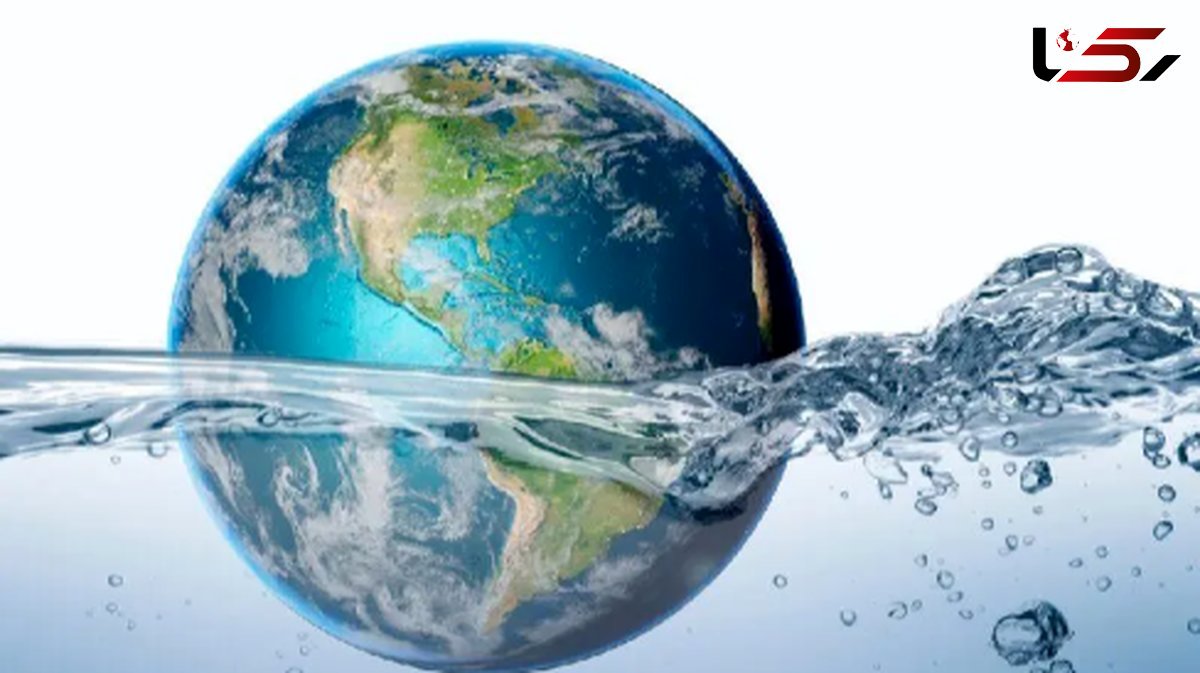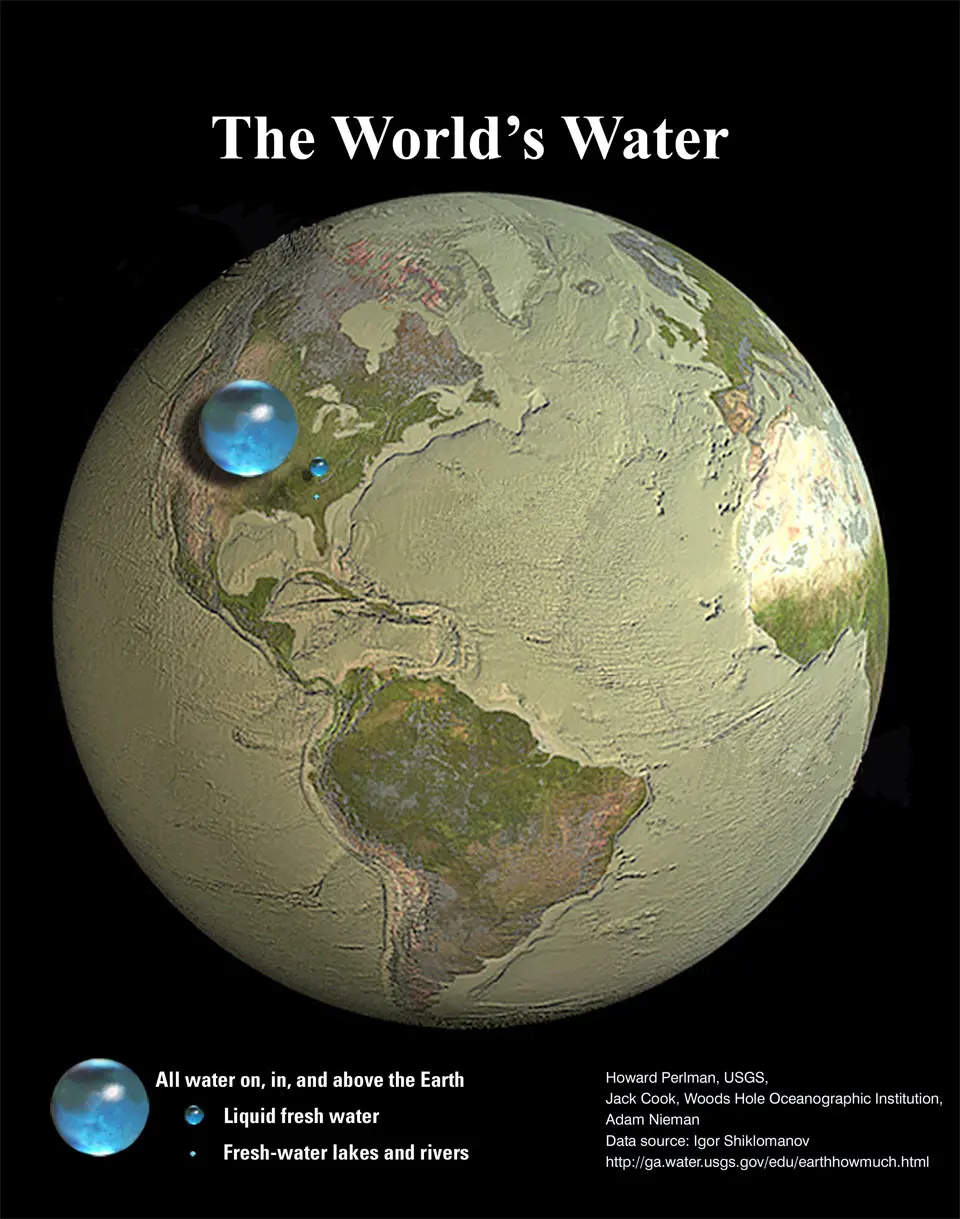Global Water Crisis Peaks: NASA Prepares for Major Challenge
Rokna Social Desk: NASA has released an intriguing image visualizing the Earth’s water as a sphere with a radius of approximately 700 kilometers, illustrating the planet’s limited water resources relative to its overall size.

According to Rokna, NASA addressed the critical issue of surface water availability on Earth through its “Image of the Day,” aiming to demonstrate the presence and scale of water on the planet.
How Much of Earth Is Water?
NASA’s explanation of the image reveals a striking reality: the total volume of water on Earth is extremely small compared to the planet’s overall volume. Although oceans cover the majority of Earth’s surface—approximately 70 percent—their depth is minimal relative to the planet’s radius. NASA effectively conveyed this fact by depicting all surface water as a single, compact sphere.

Dimensions of the Water Sphere
NASA’s calculations indicate that this sphere has a radius of about 700 kilometers—less than half the radius of Earth’s Moon. This sphere is slightly larger than Rhea, one of Saturn’s moons, which is primarily composed of water ice, similar to many other outer solar system moons. The image also includes smaller spheres representing all liquid freshwater on Earth, with the smallest sphere illustrating the total volume of freshwater found in lakes and rivers.
Origin and Future of Water on Earth
Scientists continue to investigate how such a significant quantity of water formed on Earth and whether some may be trapped beneath the planet’s surface, a topic requiring further study. Examining the relationship between climate change and the depletion of freshwater resources remains one of the scientific community’s foremost concerns.
Send Comments